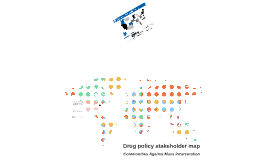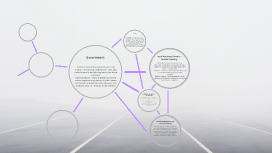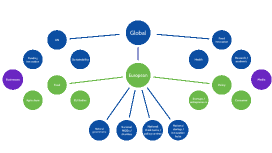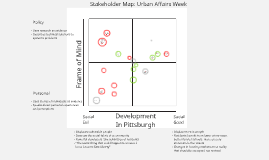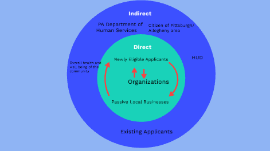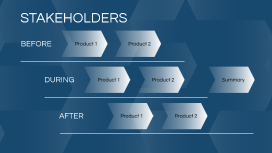Stakeholder map
Transcript: President Barack Obama said if enough states reform their marijuana laws, Congress may change federal law that continues to make the drug illegal. Decision-makers: Chicago City Council Rahm Emmanuel, Board President Chicago Police Department Illinois Laws Decision-makers: Illinois General Assembly (Senate & House) Governor Bruce Rauner State's Attorney, Lisa Madigan http://norml.org/news/2014/12/18/president-signs-federal-spending-bill-protecting-state-sanctioned-medical-marijuana-programs = http://www.justice.gov/iso/opa/resources/3052013829132756857467.pdf Communities Against Mass Incarceration http://norml.org/laws/item/illinois-penalties Patchwork: http://www.bettergov.org/biz_lights_up_for_illinois_medical_marijuana/ Decision-makers: Cook County Board of Commissioners Toni Preckwinkle, Board President Anita Alvarez, Cook County State's Attorney State penalties: Huffington Post, March 2015: http://www.huffingtonpost.com/2015/03/16/obama-marijuana-decriminalization_n_6881374.html Federal policy: Medical marijuana: Jan 2014: 4-yr statewide medical marijuana pilot begins (Approved by General Assembly). Illinois Department of Public Health (IDPH) controls program; permits 2.5 ounces / person for a two-week period. Considered the strictest medical marijuana law in country. Expensive, limited conditions, extensive criteria, requires ID. Feb 2015: Gov. Rauner approves 18 medical marijuana cultivation licenses (all prescribed marijuana must be grown in IL) and 52 selling licenses Feb 2015: IDPH begins accepting patient applications May 2015: Advisory Committee recommends adding PTSD, IBS, and migraines (among others) to list As of May 6: 2,300 people approved; dispensary not open yet State law permits arrests for possession of any amount of marijuana More than 100 municipalities have ordinances at city level to allow police to issue tickets instead of making arrests Effect of these ordinances vary widely. For instance, "in Champaign, 75% of marijuana misdemeanor marijuana possession offenders received a ticket instead of arrest" vs. "only 7%" in Chicago Drug policy stakeholder map http://norml.org/laws/item/federal-penalties-2 Department of Justice / Attorney General Holder / Federal prosecutors "Trust but verify" state-level regulation processes prosecute cannabis distributors who sell to minors, profit criminal enterprises, cross state-lines, distribute other controlled substances, use violence, grow or sell marijuana on public lands Authority / Enforcement: Sheriffs Jail Courts Prosecutors Public defenders As of 2011: Non-Chicago part of County policed by Sheriff receive ticket for up to 10 g of marijuana http://norml.org/laws/item/illinois-penalties Department of Justice / Drug Enforcement Agency Marijuana is a prohibited Schedule I Controlled Substance: the most tightly controlled schedule reserved for "no currently accepted medical use" even medical marijuana is illegal federally but as of 12/2014, DOJ cannot use $ to go after medical marijuana in 32 states where it has been legalized other Schedule I substances include heroin, LSD, and ecstasy cocaine and meth are both Schedule II (i.e., less restricted) City of Chicago As of 2015: Will no longer prosecute low-level drug offenses in all of Cook County (up to 30g); Will dismiss misdemeanor marijuana cases; Will divert nonviolent offenders into social programs and medical treatment facilities. In 2012: City Council and Mayor Emanuel approve tickets for up to 15g of marijuana possession. Tickets issued at discretion of Chicago Police Department. Cannot be issued (i.e., must arrest) if: offender does not produce ID appears to be a "threat" publicly smoking cannabis on school or park district property Tickets are for $250-$500 and up to 10 hours community service. No risk of jail time. "Civil ticket," so does not go on criminal record and arrest does not go on law enforcement record. Federal response to state legalization: Medical Marijuana in IL Federal consequences: http://www.roosevelt.edu/~/media/Files/pdfs/CAS/ICDP/PatchworkPolicyFullReport.ashx "It's kind of putting marijuana on the same playing field as plutonium," said Chris Lindsey, legislative analyst of the national Marijuana Policy Project, which favors legal regulation of marijuana sales similar to selling alcohol. "It's pretty phenomenal how high the bar is" to even apply for a license. Cook County 1st offense (any amount): misdemeanor, possible 1 yr prison / $1,000 2nd offense (any amount): misdemeanor, 15 days (mandatory minimum) / $2,500 Subsequent offense (any amount): misdemeanor, 90 days (mandatory minimum)-3 years / $5,000






